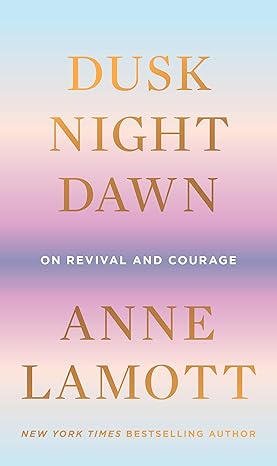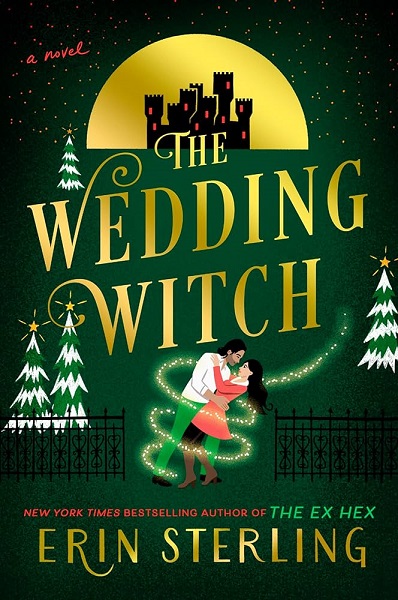There’s yet another plagiarism scandal.
But this time, the plagiarist took on all the wrong people.
(A News & Notes special edition)
You do not want to anger Romancelandia; it will come after you.
The story began on Monday, with a blog post from Courtney Milan announcing “Cristiane Serruya is a copyright infringer, a plagiarist, and an idiot.” In the post, Milan layed out irrefutable evidence of plagiarism by Serruya, a self-published author. Multiple scenes and paragraphs from Milan’s historical romance, The Duchess War, appear nearly verbatim in Serruya’s contemporary romance, Royal Love.
That post, and Milan’s follow-up remarks on Twitter, ignited a tweet-storm hashtagged #CopyPasteCris, as authors, fans, and bloggers discovered more and more evidence of plagiarism in Royal Love and at least some of Serruya’s other books. The list of works from which she plagiarized is now up to “at least 35 books, 27 authors, 2 recipes, and 2 articles,” according to Caffeinated Fae, who has been keeping a running list on her blog. That list includes some of the biggest and most recognizable names in romance: Loretta Chase, Tessa Dare, Lisa Kleypas, Sarah McLean, Kresley Cole, even Nora Roberts.
The response among the romance community has been strong, leading KJ Charles to note that one advantage to writing your own books is “never… waking up to the whole paramilitary wing of Romance Twitter descending on you like armoured pterodactyls” — an image that delighted some members of the community. When some outside the romance community expressed surprise at the fierce, rapid, and widespread condemnation of Serruya’s actions, author Beverly Jenkins tweeted, “It always amuses me when we drag people to hell how shocked people are… I guess they equate romance writers with being mild mannered and meek, not the fierce, sword wielding bitches we can be.”
But in all of this, how has Cristiane Serruya herself responded? According to The Guardian and other sources, Serruya initially proclaimed her innocence and blamed everything on the ghostwriter she hired to write the book. By Wednesday around noon, however, both Serruya’s Twitter account and her website had been deleted, and even the domain name has been abandoned. (I verified these deletions myself.) As of Wednesday evening, her Amazon page still exists, but her Kindle books have mostly been taken down, except a few in Italian. Barnes & Noble has some of her paperback books, though, including Royal Love; so does Amazon via third-party sellers. And her books are still available on Audible. (See below for an interview with Serruya.)
Serruya’s biography states that she is a lawyer with an MBA in business law (!) who decided in 2012 to “give writing a go.” (Goodreads) Except that by her own admission and the reports of several ghostwriters who have come forward, Serruya didn’t actually write her books, or at least not all of them. According to this ghostwriter who commented on Milan’s original post, and who worked on two of Serruya’s novels, Serruya hired her to write a novel and gave her “a number of mishmashed scenes that needed ‘expanding’.” If true—and several tweets from other ghostwriters bear her out (see #CopyPasteCris; sorry, I don’t have time to track each tweet down again!)—it seems likely that Serruya provided the plagiarized scenes and paragraphs to her ghostwriter.
The mindblowing aspect of the whole thing is: How on earth did she think she would get away with it? It’s bad enough to plagiarize at all, but when you do it on this scale, and steal from so many well-known, well-loved authors, whose books have sold hundreds of thousands of copies… it was inevitable that eventually, someone would recognize a scene or moment from another author’s book, and raise a stink. And that’s exactly what happened.
********
Meanwhile, Courtney Milan, who has a solid background in law, has written a second post advising her fellow authors what to do. She has also referred the issue to Romance Writers of America’s Ethics committee—of which Milan is chair, so she has recused herself from the investigation. According to tweets from RWA, Serruya’s book has been removed from consideration for this year’s RITA award, and any books assigned to Serruya to judge have been reassigned.
********
Thursday morning, the editor of Royal Love asked Courtney Milan to post her apology, in which she admits she did not recognize any of the plagiarized bits. It was her first editing job, so she may perhaps be forgiven for that. In future, it might be wise for freelance editors and ghostwriters to run the text through plagiarism checkers first, or at least google any bits that don’t feel consistent with the author’s overall voice.
********
One final point was made by author Kilby Blades, in a post titled “We’re Missing Something Big in this Cristiane Serruya Story”: The plagiarism is bad enough, but the admission that she used a ghostwriter points to a much bigger problem in the publishing and self-publishing industry as a whole. When “authors” game the system by exploiting ghostwriters to churn out book after book in rapid succession, boosting their Amazon sales and rankings, it gets much harder for legitimate writers to compete. The use of ghostwriters isn’t limited to self-publishing, and it’s not illegal per se. Nor is it always unethical, particularly if the ghostwriter gets credit. But the use and even exploitation of ghostwriters is rampant in self-publishing as a means of rocketing an author to bestseller status, largely because of the way Amazon’s system works. Please read Blades’s post, which lays out the issue clearly and in more detail.
And you might also like to read this excellent post by paranormal author Jami Gold, which summarizes the story, validates the plagiarism, upholds the legitimate functions of ghostwriters, and finally gives suggestions for what authors and readers can do in the future.
********
Nora Roberts, whose works were also plagiarized by Serruya, weighed in on Friday with her experience of “Plagiarism, then and now.” Readers my age may remember that in the late 1990s, it was discovered that Janet Dailey had plagiarized from NR’s Sweet Revenge.
********
On Saturday, Medium published an article by Lucas Mota, a Brazilian author who decided to investigate and was able to get an email interview with Serruya. That interview, which appears at the end, is juxtaposed with Mota’s research, including using an online app called Fakespot to discover whether any of Serruya’s reviews were faked (yes), and a communication he received from a ghostwriter, who sounds like one of the ones that contacted Courtney Milan. (Caveat: The article contains grammatical and other errors which I assume are either because English is not Mr. Mota’s first language, or stem from a translation program. However, it’s worth paying attention to what he found. And it’s worth reading what Ms. Serruya has to say, simply because it’s the only thing anyone has gotten from her after those first few tweets. Whether you believe her, given the evidence, is up to you… but I suggest that if you haven’t yet read Nora Roberts’ post, you do so, because Janet Dailey’s response sounds very similar to Serruya’s.)






































Nicole @ BookWyrmKntis
I hate that it’s necessary, but I love when the interwebs come together for a legitimate outrage instead of making up things to get annoyed about. And I agree about with the commenter on the “Royal Love” editor’s post — it was brave to come forward with that apology. Though I also agree that I hope she (and other editors) learns something from the whole thing.
Nicole @ BookWyrmKntis recently posted…WIP Wednesday: Geeking Along
Lark_Bookwyrm
Same here, on all counts. I would say that one lesson is to run everything through plagiarism checkers, whether you’re an editor or a ghostwriter. I mean, it’s not foolproof, but it’s a start.
Katherine @ I Wish I Lived in a Library
Man Courtney Milan was the wrong author to plagiarize!
Katherine @ I Wish I Lived in a Library
author I meant author! I didn’t meant to hit publish quite so early but I have a 9 year old talking my ear off and am trying to do too many things at once! Thanks for the summation of what was going on. I had seen bits of it but wasn’t quite sure about all that was going on. I’m glad I didn’t have to dig through twitter to get all the details. That is always a recipe for a stress attack!
Lark_Bookwyrm
No problem; I fixed it for you! And I’m glad the summary and links were helpful.
Lark_Bookwyrm
Absolutely!
Literary Feline
I caught some of the Twitter storm over this and can completely understand the outrage. That she got away with this for as long as she did is something, but I am so glad she was finally caught out. Imagine if she had targeted lesser known authors. She might never have been caught. Thank you for summarizing everything so well–and for the links. I hadn’t read Jami Gold’s post, and am so glad you shared it. I am glad to see mention of the validity of professional ghostwriters. I know someone who is a professional ghostwriter and some of the comments on twitter condemning ghostwriters did not sit well with her.
Literary Feline recently posted…Where Is Your Bookmark? (A Peek Into Judy Moody and the Right Royal Tea Party)
Lark_Bookwyrm
I’m glad the links were helpful! I agree regarding ghostwriters. Even the ones who worked for Serruya probably weren’t aware of what she was doing.
Lory @ Emerald City Book Review
This story is bizarro. I am not clear on all the issues surrounding ghostwriters — how odd to hire someone to write books for you because you want to be an author, and equally odd to do that instead of writing books of your own. But I think it’s rather unfair to demonize them as a class; I’m sure they are mostly just trying to make a living.
How I wish books could stand on their own merits, but it’s an imperfect world.
Lory @ Emerald City Book Review recently posted…A book for all seasons: Watership Down
Lark_Bookwyrm
Because of some of the ways Amazon operates, particularly in terms of how it privileges number of titles and recent titles in its listings, and the rules by which it determines which authors get which percentage of the Kindle Unlimited pool of money, it has become common for individuals or whole scam operations to pump out lots of titles quickly. If what they want is money, rather than to be an author, then using ghostwriters (and finding them on Fiverr or similar sites, and paying them a pittance) is one way to create a lot of books very quickly. Plagiarism is another. Ms. Serruya appears to have used both tactics.
I agree that ghostwriters as a class shouldn’t be demonized. Many do excellent work, penning nonfiction titles for celebrities or organizations, or writing or updating textbooks. In fiction, ghostwriters work on series like Nancy Drew, or the posthumous novels of V.C. Andrews, or—as in the case of books by James Patterson—they flesh out a detailed outline provided by another author. In some cases, the ghostwriter is credited, even on the cover. (Patterson’s “ghosts” are credited as co-authors on the cover, and they are often established writers; working with Patterson can get them additional visibility and leads to better sales of their own books, and I believe he pays them a reasonable amount, as well.)
Sadly, there’s another side of the ghostwriting world, and that’s the people who accept jobs through websites like Fiverr, often for ludicrously low rates. (One blogger who investigated mentioned figures as low as $100 for a 50-thousand-word novel. You have to be really desperate to accept that kind of payment, and you’re not going to be able to spend any time on writing well.) The quality and skill of these ghostwriters varies, but the fake authors and scam operators on Amazon don’t care about quality, just $$. I don’t blame these ghostwriters, for the most part; given the low pay, I suspect many of them are just trying to keep the wolf from the door.
Lory @ Emerald City Book Review
The system that allows such a situation to develop seems much more at fault than the ghostwriters who don’t derive much benefit from it. The non-ethical practices of Amazon grow ever more disturbing; will they ever be taken to account?
Lory @ Emerald City Book Review recently posted…A book for all seasons: Watership Down